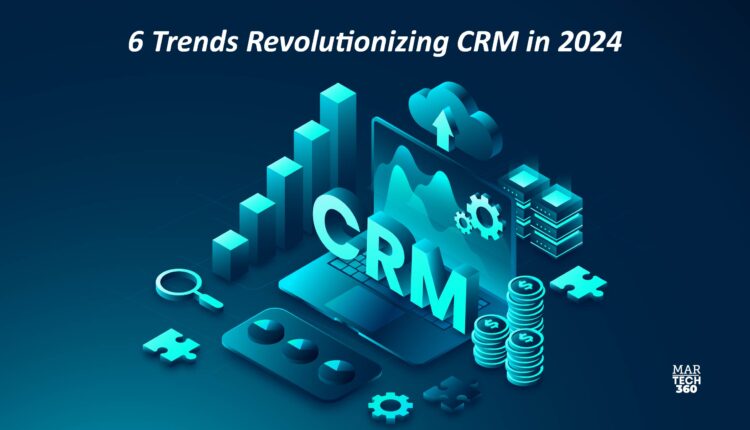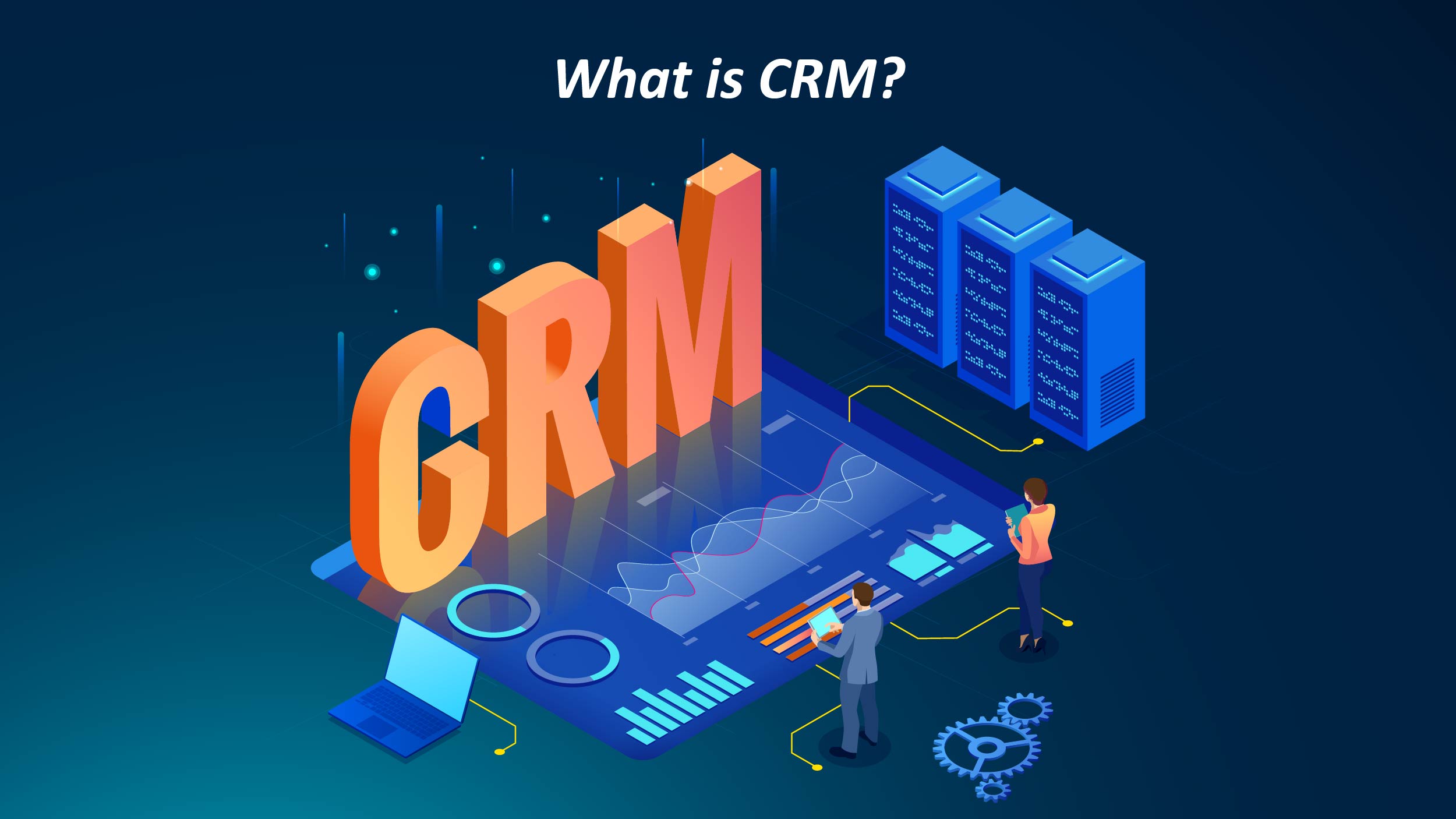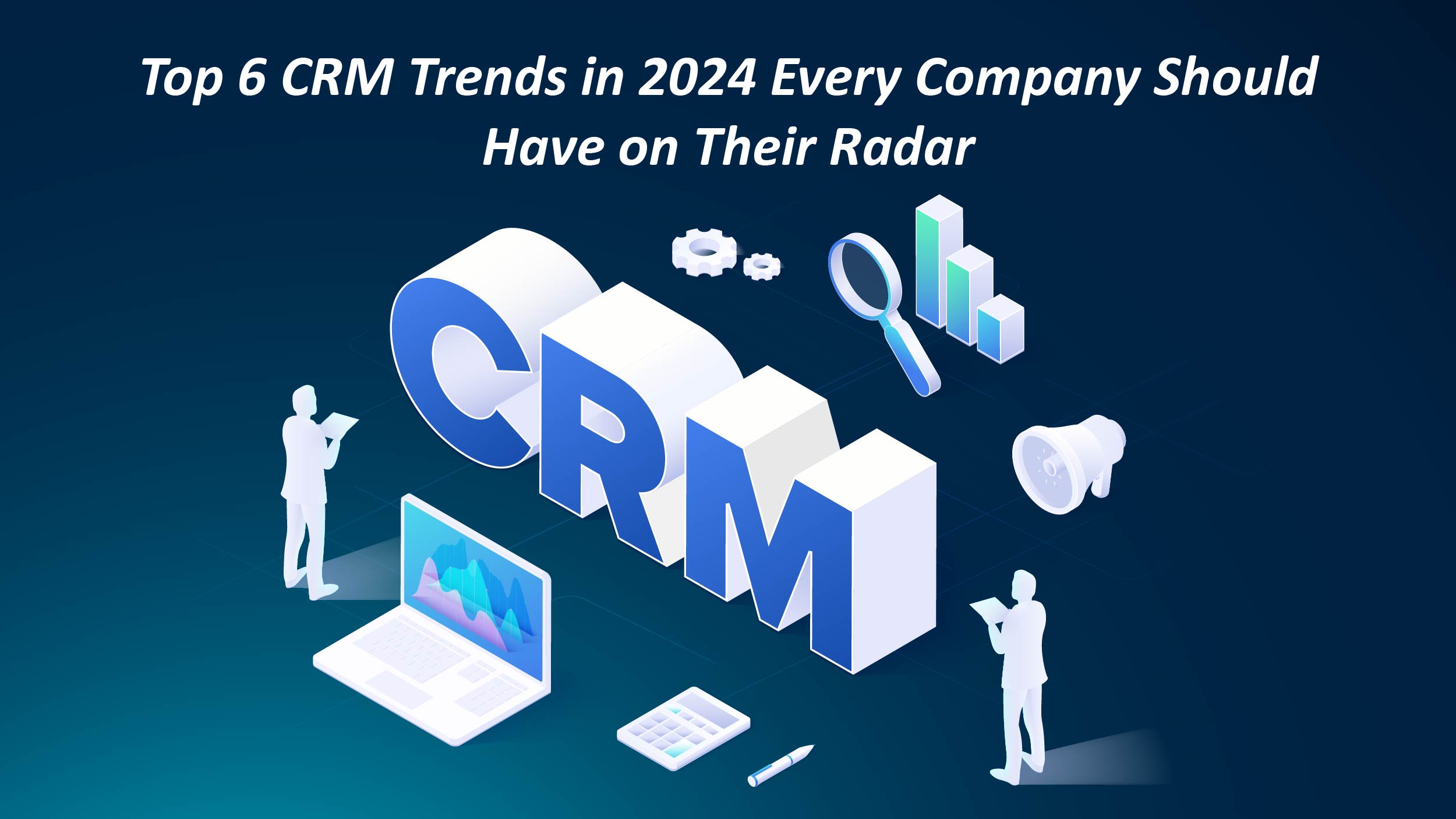Ever wondered about the future of customer relationship management (CRM)? What lies on the horizon, and how will businesses navigate the evolving landscape to build lasting connections with their customers? Let’s cast our gaze into the crystal ball and explore the anticipated CRM trends in 2024.
As the business world continues its digital transformation, the pulse of customer relationships quickens with innovative strategies and technologies. Let’s get started!
What is CRM?
Customer relationship management (CRM) is a method used by companies for handling their interactions and relationships with customers. To do this, data must be gathered from a variety of communication channels, including a company’s website, phone number, email, marketing materials, social media, etc. To better understand the target audience and meet their demands, the data is analyzed.
CRM is a fiercely competitive, expanding industry. Everyone talks about delivering world-class customer experiences, CRM strategies, and the critical role CRM plays in propelling businesses forward as market demands grow more intense.
Top 6 CRM Trends in 2024 Every Company Should Have on Their Radar
In the dynamic landscape of CRM, staying attuned to CRM market trends is imperative for organizations aiming to optimize customer interactions. Here are some of the top CRM marketing trends every business should know about.
1. Increased Use of Artificial Intelligence
Today, there is hardly any sector where artificial intelligence (AI) is not being implemented so how can CRM miss out on AI? Due to an increase in the sophistication and quicker reaction by deep learning systems of AI software, CRMs are no longer dependent on humans to manually scan and interpret data. Today, AI-powered Customer Relationship Management systems are analyzing, presenting, and interpreting huge amounts of data in seconds.
From the sales teams to customer support, everyone can collect the data they need in a fraction of a second because of the increased use of AI in CRM. This is helping businesses reduce the typical time consumed in data handling and avoid the loss of meaningful data in the process. As we explore CRM trends in 2024, the fusion of AI and CRM promises to reshape how businesses navigate and leverage their data landscape.
2. Internet of Things with CRM
The Internet of Things (IoT) helps a user to transfer data about maintenance or product issues to the service provider. With IoT integration with CRM, businesses can easily identify potential threats and performance bugs raised by customers. This motivates developers to leverage the capabilities of the IoT into CRM to provide solutions that allow companies to improve the quality of their customer service.
This fusion, marked by CRM trends in 2024, enhances the overall quality of customer service by offering personalized experiences. IoT integration with CRM will prove highly beneficial for gaining deep insights into customer behavior to enable businesses to customize their products.
3. Voice Technology
Smart voice assistants are soon to become an addition to CRM platforms. A wide percentage of users have considered and are actively using voice technology as it is helpful, saves time and has also proven to improve the quality of life.
It is predicted that integrating voice assistants like Amazon’s Alexa with CRM systems will make task tracking easier, provide quick access to information, allow data transfer, notify your employees/teams about any changes in customer data, and help them save both effort and time. The evolving landscape of CRM trends in 2024 is steering towards a more intuitive and streamlined customer relationship management experience.
4. The Rise of Mobile CRM
In the midst of a global digital transformation, the imperative to keep up with the pace of digitization is growing. This is where CRM trends in 2024 come into play. In the wake of the pandemic, the demand for portable devices has surged, putting mobile CRM at the forefront of discussions. The spotlight is on mobile phones, as accessing CRM software or tools on a mobile device becomes increasingly practical. With Mobile CRM, professionals can transcend traditional work hours, enabling them to engage in meetings and tasks anytime and anywhere.
5. Increased Access to First-time CRM Users
According to LinkedIn’s State of Sales 2020, 97% of sales professionals believe that sales technology is “very important” or “important,” and 65% of salespeople use a CRM. One-third of salespeople are still not utilizing CRMs. Concerns about cost and a lack of resources and technical expertise to deploy a CRM system are common impediments to adoption. However, these concerns are gradually diminishing, aligning with CRM trends in 2024 that emphasize affordability, simplified setup, and user-friendly operation.
6. Social CRM Ruling Internet
Social CRM, a pivotal aspect of CRM trends in 2024, involves the integration of social media sites with CRM systems. Companies can get a more comprehensive picture of what people are talking about on social media and a better grasp of brand sentiment by combining social media and CRM. Companies can improve interactions with current and potential consumers and incorporate more user feedback into their roadmaps if they can use social CRM to respond to comments promptly and wisely.
Conclusion
If we were to make one general forecast about technology and CRM trends in 2024, it would be that more companies will use technology to eliminate or automate the chores they don’t want to do, improving the outcomes of the work they do. A solid CRM, automated workflows when practical, and a linked app stack that allows for free data movement between your apps are the key ingredients for success. Businesses use customer relationship management (CRM) as a technique to control their communications and connections with customers. To do this, data must be gathered from a variety of communication channels, including a company’s website, phone number, email, marketing materials, social media, etc.
Increased marketing automation technologies are the driving force behind the future of CRMs. Changes and advancements in new technologies, data laws, and high social media usage have opened gates for businesses to find and analyze data that would otherwise have been unusable. Businesses can consider the above trends in CRM and go ahead to make a revolutionizing change in their business to better scale it and grow.




Comments are closed.